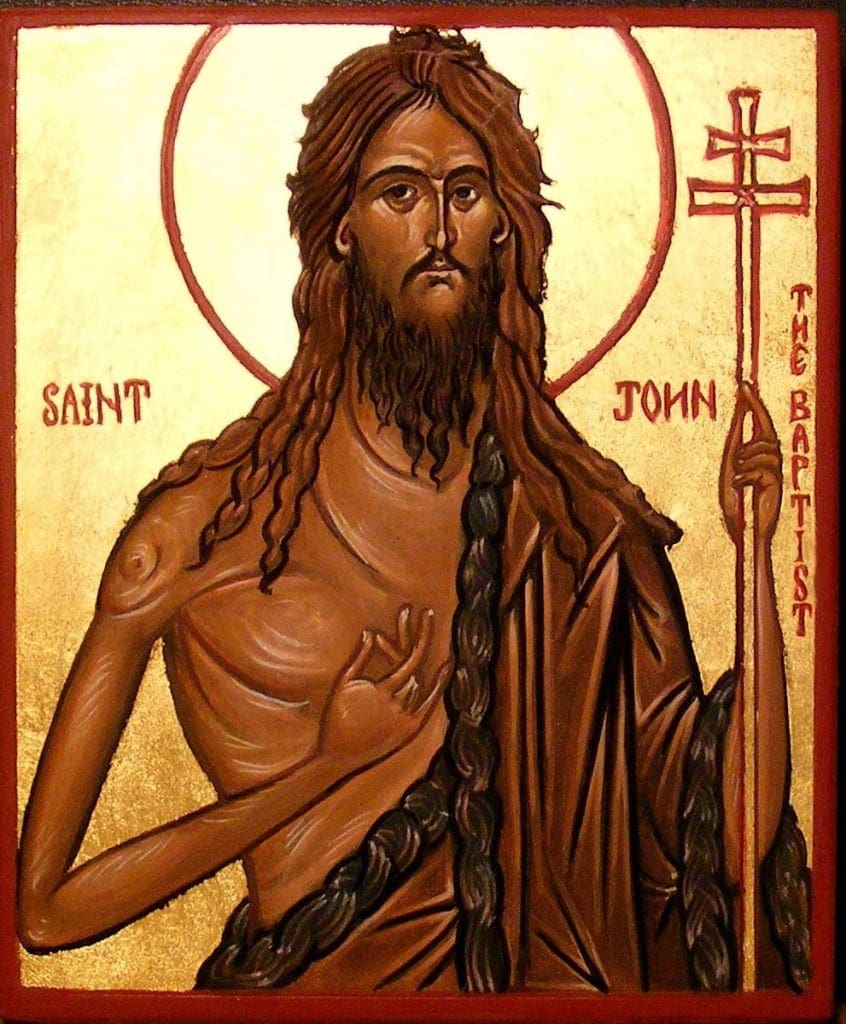 Be who you are – Father Pat Griffin offers this reflection in his series on Considering Consecrated Life
Be who you are – Father Pat Griffin offers this reflection in his series on Considering Consecrated Life
The role of John the Baptist is to prepare the way for Christ. His responsibility is to help people get themselves ready to listen and follow when Christ appears. He must have been good at his task. In this past Sunday’s Gospel (Lk 3:10-18), people approach him for advice on how they should live their lives. Surprising individuals ask him about what they should be doing, and John gives each of them the most practical and concrete of recommendations: he tells them to be good in doing what they are doing. Listen to him again as he addresses three groups of people.
The crowds asked John the Baptist, “What should we do?” He said to them in reply, “Whoever has two cloaks should share with the person who has none. And whoever has food should do likewise.”
Ordinary folk want to know what they should do, and John has no marvelous tasks for them to accomplish. He tells them simply to be generous with those among them who have nothing: distributing their extra clothes, sharing their surplus bread and drink with the hungry. John does not expect people to impoverish themselves, but to be attentive to what can be useful to those who have much less. We can hear Jesus’ lesson from Matthew 25 in his words (“When I was hungry, you gave me to eat . . .”).
Then a second group approaches John:
Even tax collectors came to be baptized and they said to him, “Teacher, what should we do?” He answered them, “Stop collecting more than what is prescribed.”
The tax collectors often experienced the hatred of their fellow Jews. These individuals cooperated with the Roman authorities in imposing burdens upon their own people. They were categorized among the public sinners and they kept themselves separate from their Jewish neighbors. These publicans often heard accusations of cheating their own people in the collection of the taxes—requiring more to be paid than even the Romans demanded and thus putting the profit in their own pocket. John does not tell them to abandon their profession; he tells them simply to be honest in carrying out their task. Yes, be tax collectors, but be honest men who carry out this responsibility without cheating or causing undue burdens for people.
Finally, a third group comes to the Baptist:
Soldiers also asked him, “And what is it that we should do?” He told them, “Do not practice extortion, do not falsely accuse anyone, and be satisfied with your wages.”
John impressed even soldiers—non-Jews—with his message. They asked him how to live their lives. Perhaps no one is more tempted to abuse than those who have power which is backed by violence. These soldiers could often use their numbers and positions to take advantage of conquered peoples. Again, John does not tell them to stop being soldiers; he invites them to be just and satisfied in this role. In his directives, one can hear the kinds of actions which could characterize a greedy soldier: extortion, deceit, and bribery. John calls them to be good men in carrying out their occupation.
The Baptist has these very practical words for the people of his time as he calls them to prepare for the coming of the Christ into their lives. He would address similar words to us which we might characterize in that formula: Be who you are.
As members of the Vincentian Family – a priest or brother of the Congregation of the Mission, a Daughter or Sister of Charity, a member of the Society of St. Vincent de Paul or the Ladies of Charity, a participant in one of our numerous youth groups – we could ask John: “what should we do to live our calling properly.” He would invite us to be true to our heritage—to read our Common Rules, our Constitutions, our Manual, our Charter. In particular, he would call us to be attentive to the needs of the poorest among us and to act with simplicity and humility as we exercise charity. The call for us would not involve a change of our charism or a need to seek a new way of living. He would challenge us to be what we profess to be. There is no better way for us to prepare ourselves for the coming of the Lord. John would know that as he summons us to conversion.
Vincent speaks in a particular way to the Sisters regarding how they should be true to their vocation. It would be easy for us to substitute our own role as members of the Vincentian Family:
“To be true Daughters of Charity you must do what the Son of God did when He was on earth, and what did He do mainly? After submitting His Will and obeying the Blessed Virgin and Saint Joseph, He worked constantly for his neighbor, visiting and healing the sick and instructing the ignorant for their salvation.” (VdP, CCD 9, L. 2, 19July1640, p. 14)







0 Comments